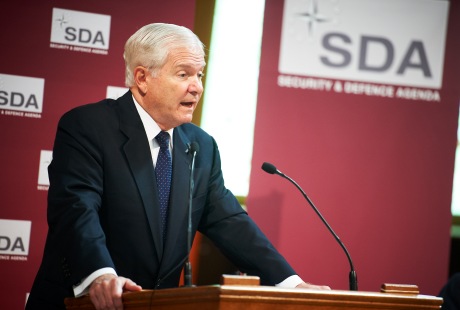The trio of presidencies presents its position on permanent structured cooperation
(BRUSSELS2) The three countries which are going to take the presidency (Belgium, Hungary, Poland) have agreed on a common position paper on permanent structured cooperation (PESCO according to the English acronym). A paper which follows on from a first "non-paper" (discussion document) from Belgium.
Priority of the Belgian Presidency
A meeting of high-level experts will be dedicated to this on 13 July. And the Belgian presidency, which has placed this innovation of the Lisbon Treaty at the center of its priorities (at least in terms of defence), hopes to arouse enthusiasm (which has not yet really existed) or even to find a general agreement second half of 2010 to enable the establishment of PESCO in 2011.
Essential priority because it is ultimately about having a "greater efficiency"defense spending,"eliminate some current duplications", For"address identified shortcomings"capacities and"achieve a better rate of operational efficiencyit" (only 4% of EU forces are currently deployed).
This document takes up many elements of the Belgian approach (read: Permanent structured cooperation, according to Belgium), particularly on the notion of progressive objectives. In general, he advocates an approach "pragmatic and careful", avoiding a "bogged down"in a debate that is too technical because the first objective"is to create a political rapprochement". It also establishes a development in three stages: 1° first, an agreement on the existing choices, 2° then, the definition in principle of the criteria to be respected, 3° finally, the reflection on the role of the Agency European defence.
1. The main choices
The permanent structured cooperation must be: inclusive, military, unique, permanent and progressive or convergent.
Thus PESCO should not "not be limited to a small number of countries". It should be according to the vision of the Belgian-Hungarian-Polish trio "rather inclusive"A two-speed Defense Europe must be avoided." Be that as it may, the work carried out within the framework of PESCO should remain "transparent for all member states" (in other words for those who do not participate.
PESCO must keep its initial military objective. He is "premature to consider a full integration of civil and military aspects, even if this possibility cannot be excluded". It must target both capacity building, armament and operational aspects.
The permanent structured cooperation is one but divisible. PESCO must remain"unique and permanent". There is no other possible legal interpretation. This cannot "not be a casual cooperation". But ad hoc cooperation can be established outside it. "Integrating all existing forms of cooperation would not automatically bring additional benefits". For the trio author of the document, it is more a "strategic and general framework"allowing to give a"structure to thematic forms of cooperation in different fields". Four areas are identified: capabilities, operations, defense and armaments industry, research & technology.
Finally, for its designers, PESCO must be a process of convergence. It should not reflect the current situation of the different Member States but what they intend to develop in a given time. (NB: a process very close to Economic and Monetary Union in a way).
2. Convergence criteria: measurable and progressive over time
The principle is to be able to remedy "multinationally" to operations and capability deficits. This first of all implies having a definition of "standards". The criteria for selecting states participating in PESCO must be in accordance with NATO commitments, geared towards what states can provide in terms of defense (outputs) and not what they provide (inputs), being "measurable"in terms of tasks to be performed or abilities acquired, and, one might say, reasonable, making the distinction between the need to have "ambitious criteria"and to have a"inclusive cooperation".
Each of the objectives will be defined for each of the 4 areas. This should allow "convince hesitant member states" (which may be of significant interest for some tasks and not for others, for example).
These goals will be dynamically designed. The objectives can change over time, in stages. This would encourage Member States to "systematically increase their current level of ambition".
The obligation to update the Capability Development Plan (CDP) in 2010 would be an "opportunity" to harmonize it with the objectives of permanent structured cooperation.
3. The role of the European Defense Agency: reinforced
The European Defense Agency has a clearly defined role in PESCO, to assess each year the contributions of the Member States participating in it. The Agency's role remains "unclear". The trio believes that this role of "facilitator, who urges Member States to cooperate and participate in joint programmes" is essential. And that the existing role of the Agency should be "confirmed and reinforced".
(Nicolas Gros-Verheyde)
